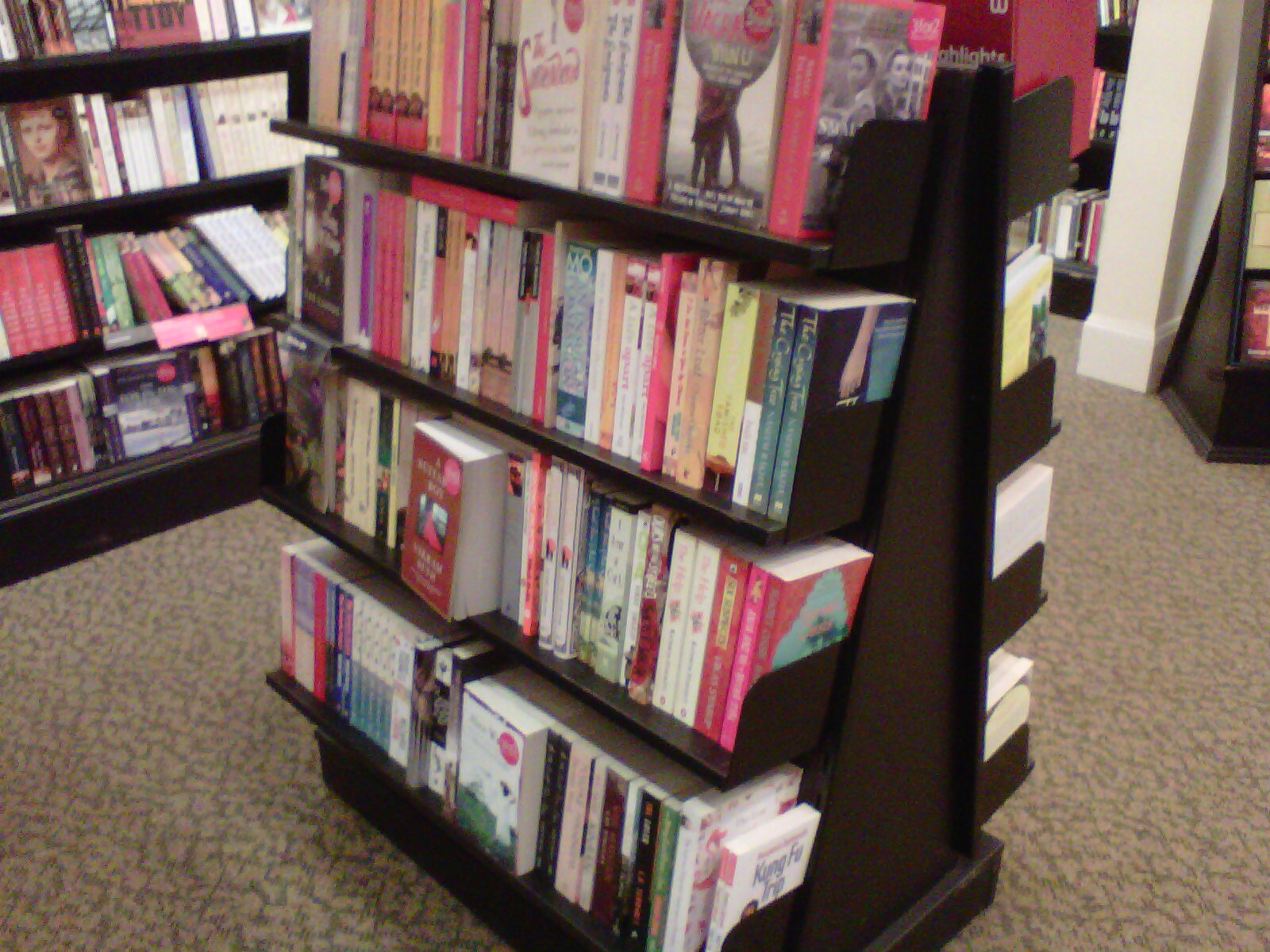After a hoohaa about World Book Night, I sat down to watch the coverage of it on BBC and ended up having a rant about...well, you can read it yourself (first published on The Asian Writer):
As an extension of Farhana Shaikh’s earlier rant about Asian writers being outsiders looking in, I have to confess that watching New Novelists 12 of the Best from The Culture Show left me a little queasy about the lack of diversity in the their list of ‘up and coming’ authors in British literary fiction.
The Guardian Comments section sparked a healthy discussion about the lack of ethnic diversity in the short-list, but no one expressed a huge amount of surprise at this ‘glass ceiling.’ It’s a shame that the long-list wasn’t made available online for us readers to make our own judgments and recommendations. I realise that the group of ‘judges’ convened for the Culture Show (which included the show’s own editor, Janet Lee) is one of many panels charged with producing lists such as this throughout the year. We know that each time a list like this is given prominence (two and half pages in the Guardian Review section a week earlier), it pushes up sales for both long- and short-listed authors. A published long-list by The Culture Show would have gone a long way in benefiting more than just the 12 authors showcased on the night. It would also have given us a glimpse of a more diverse range of debut novelists; 57 novels were submitted, and I spotted Neel Mukherjee’s A Life Apart amongst the pile.
Of the 12 books presented on the night, I’m afraid I’m only likely to pick up one, David Abbott’s The Upright Piano Player, firstly because the wonderfully eloquent Helen Oyeyemi described it as having ‘a quiet dignity’ and secondly because he is the man who wrote the JR Hartley commercial for Yellow Pages in the 1980s.
On the same night, In a Million Books for Free: A Culture Show special, raised questions about how writers are selected for promotion. In an interview with Jamie Byng, Chairman of World Book Night, Andrew Graham-Dixon glossed over any questions of why new authors were not considered. According to Byng, the criteria for making it onto the list was that the books should be ‘great reading experiences,’ and there’s no doubt that each of them are. This suggests, however, that forcing titles from anyone other than ‘star’ authors onto the public would not provide enough of a hook for them to continue reading or, crucially, buying books.
Don’t get me wrong, the event itself was worth staging for many reasons, and I really enjoyed handing out books at my local library. World Book Night has its supporters and its critics and I’m not going to rehash those discussions here but next year I would like them to seek out lesser known authors.
This brings us back to lists again. Given that 23 of the 25 titles given out freely have reportedly seen an increase in sales from being featured on World Book Night, imagine how many more authors would have been able to pay their gas bill if they had been promoted in a similar way, and their back catalogue or debut novel sales had increased as a result?
I suppose it’s early days for initiatives such as World Book Night, but the broader question remains. How do we promote a diverse range of writers without relying on closed or elite circles of critics and judges (largely based in London)? And what is the criteria for making it onto a judging panel anyway? Maybe The Asian Writer should set up it’s own panel?
For events like World Book Night, diversity appears to mean ‘a conscious attempt’ to include thrillers, memoirs, crime, literary fiction, poetry and cross-over novels (no short stories though). It seems that what is viewed as ‘promising’ is highly subjective and that the power of recommendation and the marker of critical acclaim still lie in the hands of a predominantly white publishing industry; an industry where we are indeed outsiders looking in.
Maybe we’re outsiders because we present problems for marketing teams; we’re too Asian, or not Asian enough, or too niche, or too serious, or too predictable or just not producing what the industry expects from us. Terrorism or arranged marriage is what we do best, or so we’re told. Or maybe it’s just that our voices are being drowned out by the distant hum of white noise.
Here’s the list of the “12 Best New British Novelists” according to The Culture Show:
David Abbott – The Upright Piano Player
Jenn Ashworth – A Kind of Intimacy
Ned Beauman – Boxer Beetle
Deborah Kay Davies – True Things About Me
Samantha Harvey – The Wilderness
Adam Haslett – Union Atlantic
Rebecca Hunt – Mr Chartwell
Stephen Kelman – Pigeon English
Jim Powell – The Breaking of Eggs
Anna Richards – Little Gods
Eleanor Thom – The Tin-Kin
Evie Wyld – After The Fire, A Still Small Voice





